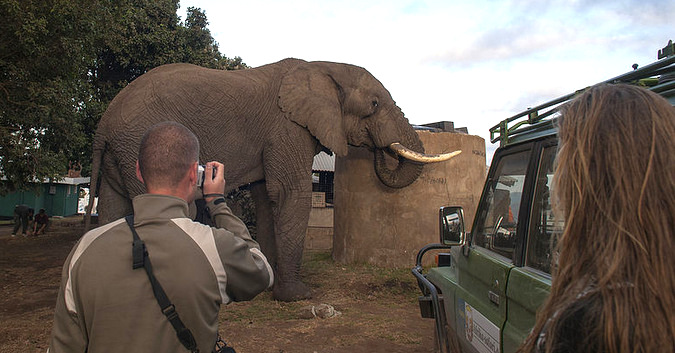
Going on a safari in Africa means that you will encounter wild animals at some stage. Some of these animals will be dangerous, and all deserve your respect.
Here are 10 essential safari tips about wild animals to keep in mind:
1) They are wild! These are not tame theme park animals, or Disney channel characters. Even a small doe-eyed antelope or cute warthog can and will attack you if it feels threatened;
2) Most safari camps are unfenced and dangerous animals can (and do!) wander through the grounds, particularly at night;
3) Please listen to advice from camp staff and guides, and strictly adhere to safety precautions;
4) Don’t go wandering off on your own without a guide. Even walking to your room at night can be dangerous. Elephants and buffaloes are impossible to see after dark, even a few metres away. Don’t leave your room at night and avoid walking along river banks (crocodiles and hippos kill many people every year);
5) Observe animals silently and with a minimum of disturbance to their natural activities. Talking loudly and standing up on game drive vehicles can frighten the animals away, or even trigger an attack;
6) Never attempt to attract an animal’s attention. Don’t imitate animal sounds, clap your hands, pound the vehicle or throw objects. Please respect your guide’s judgement about proximity to predators and large animals like elephants. A vehicle driven too close can hinder a hunt or cause animals to abandon a hard-earned meal. It can also trigger a charge;
7) Litter tossed on the ground, in addition to being unsightly, can choke or poison animals and birds;
8) Never attempt to feed or approach any wild animal on foot. Lodges and campsites will suffer the consequences of your actions, as these animals then become accustomed to humans – leading to danger for all involved;
9) Refrain from smoking on game drives. The dry African bush ignites very easily, and a flash fire can kill animals and destroy vast areas of grazing;
10) Be especially wary of leaving young children unattended while on safari. Noisy children not only irritate other guests, but they also attract predators like leopards because their vocalisations sound like distress calls from prey animals. Young children are often unsteady on their feet or erratic in their movements, and this can trigger an attack from even small animals that would typically avoid humans. For these reasons, many lodges do not take young children on game drives or even allow them at the lodge. Read more info about kids on safari.
For accommodation options at the best prices visit our collection of camps and lodges: private travel & conservation club. If you are not yet a member, see how to JOIN below this story.
To comment on this story: Login (or sign up) to our app here - it's a troll-free safe place 🙂.![]()






